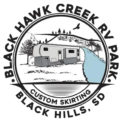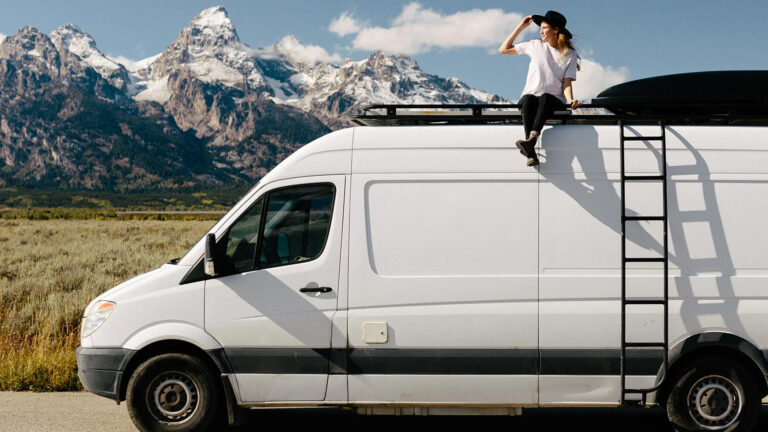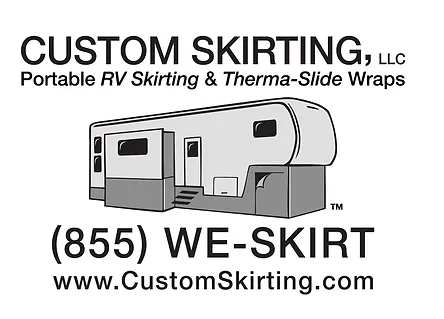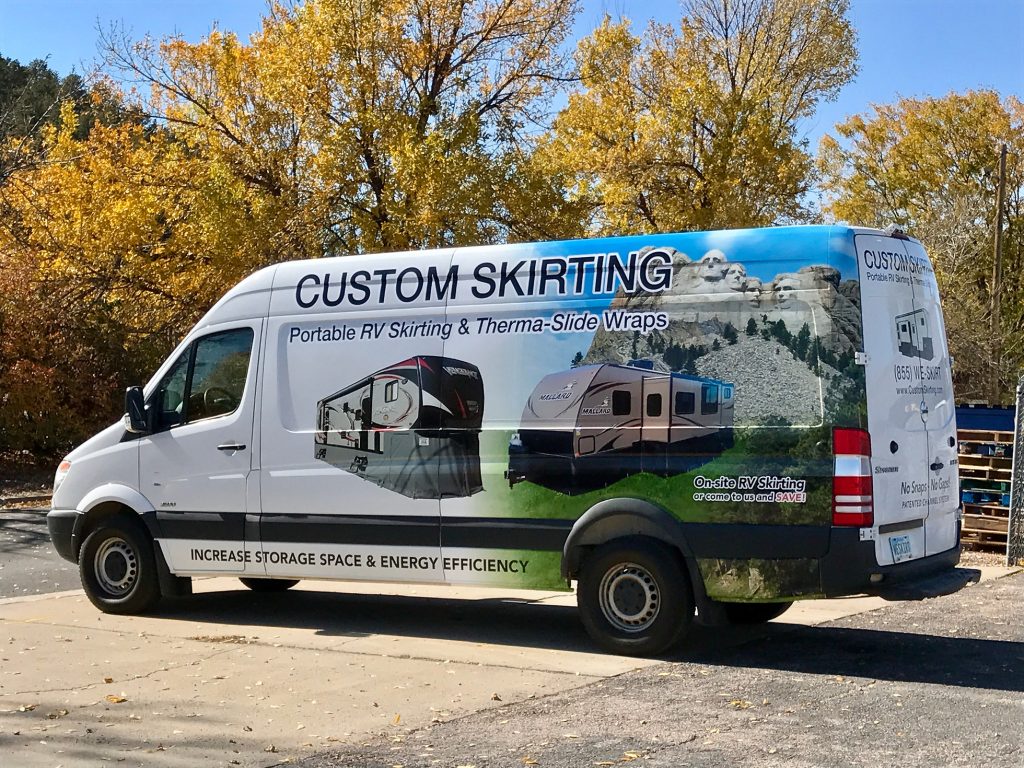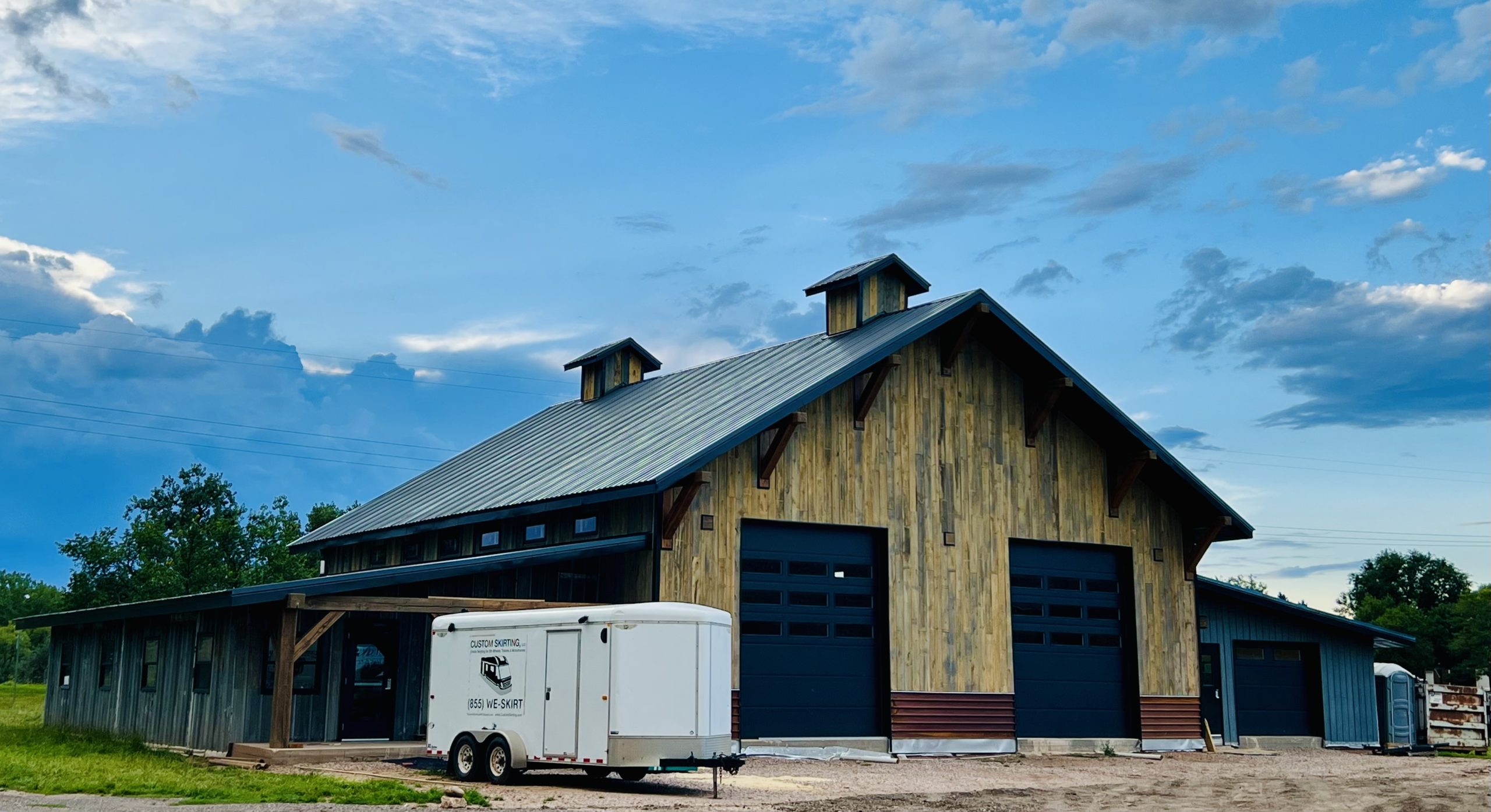Table of contents
- Verifying Ownership and RV History
- Exterior Inspection Checklist
- Interior Assessment and Functionality
- Mechanical and Performance Inquiries
- Documentation and Legal Considerations
- Professional Inspection and Expert Advice
- Financial Considerations and Negotiation Tips
- Ready to embark on your RV adventure?
- Related Articles
The allure of RV travel has captivated many adventurers seeking the freedom of the open road and the comfort of a home on wheels. For those considering this lifestyle, purchasing a used RV can be an attractive option. It often offers significant cost savings compared to buying new, but it also comes with its own set of challenges. Ensuring you make a sound investment requires thorough research and asking the right questions to ask when buying a used camper or an RV from a private seller. In this guide, we’ll cover the essential questions to ask when buying a used RV, whether from a dealership or a private seller. By the end of this article, you’ll know what to ask when buying a used RV and what to look for when buying a used camper.
Verifying Ownership and RV History
Before diving into the inspection process, it’s crucial to start with the basics: verifying the ownership and history of the RV. This step can prevent potential legal issues and help you understand the vehicle’s background, and it’s an essential part of what to look for when buying a used camper.
Who is the registered owner of the RV?
One of the first questions to ask when buying an RV from a private seller is about ownership. Ensure the seller is the rightful owner of the RV. Request to see the title and verify that it matches the seller’s name. A clean title ensures there are no liens or unresolved loans attached to the RV.
Can you provide the RV’s Vehicle Identification Number (VIN)?
The VIN is crucial for checking the RV’s history. Use the VIN to run a background check on the RV through services like CARFAX or the National Motor Vehicle Title Information System (NMVTIS). This will reveal any history of accidents, title issues, or if the RV was ever reported as stolen.
What is the RV’s history of use?
Ask the seller about the RV’s usage history, including the number of previous owners and the type of travel it has been used for (e.g., long-term living, weekend getaways, cross-country travel). Understanding how the RV was used can give you insights into potential wear and tear.
Are there maintenance records available?
Maintenance records are vital, especially for Class A RVs, which require regular servicing. Reviewing these records will give you a clear picture of how well the RV has been maintained over the years. A well-documented maintenance history can also indicate a reliable and well-cared-for vehicle.
Exterior Inspection Checklist

The next step involves a thorough inspection of the RV’s exterior. This is where you’ll start to see if there are any red flags regarding the RV’s condition and what to look for when buying a used camper.
Are there any signs of water damage?
Water damage is one of the most critical things to look for when buying a used camper. Inspect the roof, walls, windows, and seals for any signs of leaks, mold, or mildew. Water damage can be costly to repair and may indicate underlying structural issues.
What is the condition of the undercarriage and chassis?
Check the undercarriage for rust, cracks, or any signs of damage. The chassis should be in good condition with no signs of corrosion or deterioration. This is especially important if the RV has been used in areas with harsh weather conditions or salt-treated roads.
How are the tires holding up?
Tires are an essential part of your RV’s safety and performance. Inspect the tires for tread wear, cracks, or bulges. Also, check the tire’s age—tires older than six years, even with good tread, may need to be replaced due to rubber degradation.
Are external features like awnings or slide-outs in working condition?
Ensure that all external features, such as awnings, slide-outs, and storage compartments, are functioning correctly. Test the slide-outs for smooth operation and check the awnings for tears or signs of wear.
Interior Assessment and Functionality
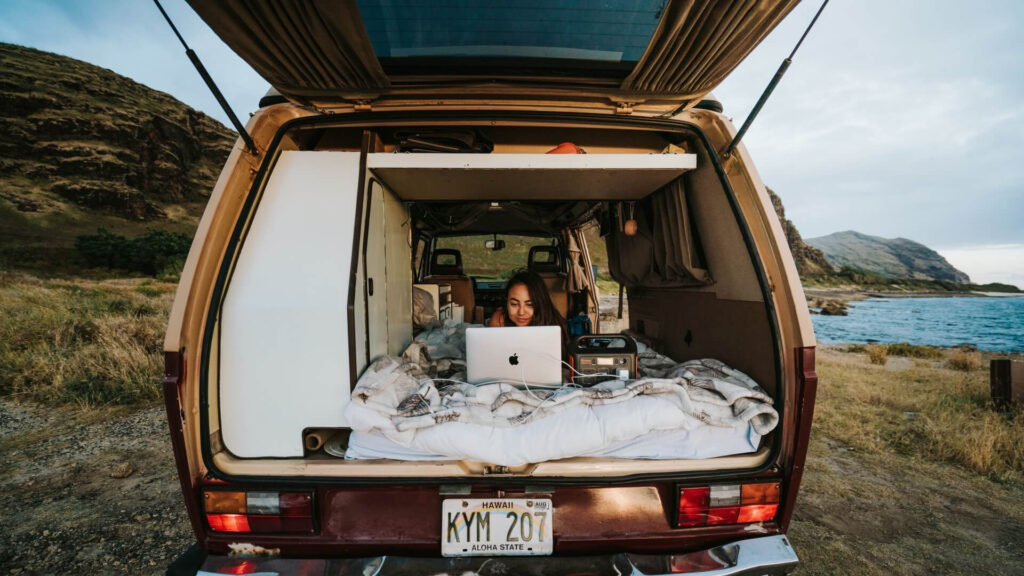
After inspecting the exterior, move inside the RV to evaluate the living space and check that all systems are operational.
Are there any noticeable odors, such as mold or pet smells?
Unpleasant odors can be a sign of underlying issues, such as water damage or poor ventilation. Take note of any strong smells that could indicate mold, mildew, or long-term pet occupancy.
How comfortable is the layout and living space?
Assess the interior layout to ensure it meets your needs. Consider factors like sleeping arrangements, kitchen space, bathroom facilities, and storage options. The best vans for van life are those that offer both functionality and comfort.
Do all appliances and systems work properly?
Test all appliances, including the refrigerator, stove, microwave, and water heater. Check the plumbing (sinks, showers, toilets) for leaks and ensure the electrical system is functioning correctly. Make sure the heating and cooling systems are in good working order, as these are vital for comfortable living conditions.
Is there any visible damage or wear and tear?
Look for signs of wear and tear, such as scratches, dents, or worn-out upholstery. While some cosmetic issues may be expected in a used RV, excessive damage could be a red flag.
Mechanical and Performance Inquiries
The RV’s mechanical components are crucial to its reliability and longevity. Asking the right questions to ask when buying an RV/Camper from a private seller can save you from costly repairs down the road.
What is the condition of the engine and transmission?
For motorized RVs, inquire about the engine’s condition, including mileage, oil change history, and any known issues. The transmission should also be smooth and free of any slipping or unusual noises. A test drive can help you assess the RV’s performance.
How is the battery and generator functioning?
Check the battery for signs of corrosion and ask about its age and performance. The generator should start easily and run smoothly without any issues. Test the generator under load to ensure it can power the RV’s systems effectively.
Are there any known mechanical issues or recent repairs?
Ask the seller if there have been any recent repairs or if there are any ongoing mechanical issues. Knowing about these in advance can help you budget for potential repairs.
Can I take the RV for a test drive?
A test drive is essential to evaluate the RV’s handling, braking, and overall performance. Pay attention to how the RV drives, listening for any unusual noises or vibrations. This will give you a feel for the RV’s condition and help identify any potential problems.
Documentation and Legal Considerations
Before finalizing the purchase, make sure all legal aspects are in order to avoid future complications.
What documentation is required for insurance and registration?
Ensure you have all the necessary paperwork for insuring and registering the RV. This includes the title, bill of sale, and any emissions or safety inspection certificates required by your state.
Has the RV ever been salvaged or involved in a major accident?
Check if the RV has a salvage title or if it has been in a significant accident. A salvage title means the RV was declared a total loss by an insurance company and could indicate serious previous damage.
Is an extended warranty available or transferable?
If the RV is still under warranty, find out if it is transferable to you. Consider purchasing an extended warranty to cover potential repairs and maintenance costs.
Professional Inspection and Expert Advice
Even if you feel confident in your assessment, a professional inspection can provide peace of mind, especially when considering the important questions to ask when buying an RV/Camper from a private seller.
Should I hire a professional RV inspector?
Hiring a professional RV inspector is one of the most critical steps you can take when buying a used RV. Inspectors can identify issues you may have missed and provide a detailed report on the RV’s condition.
What level of inspection should I choose?
RV inspections vary in depth, from basic safety checks to comprehensive evaluations covering all systems and components. Choose an inspection level based on your comfort level and the RV’s age and condition.
Can I consult with experienced RV owners for advice?
Talking to seasoned RV owners can provide valuable insights and tips for buying a used RV. They can share their experiences and help you avoid common pitfalls.
Financial Considerations and Negotiation Tips
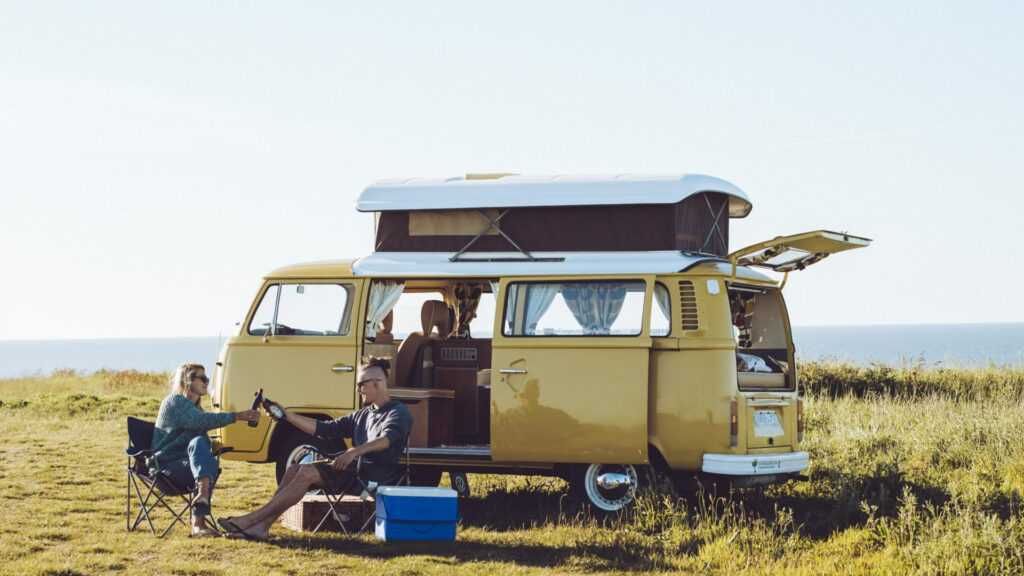
Understanding the financial aspects of buying a used RV, including the essential questions to ask when buying an Camper/RV from a private seller, will help you make an informed decision and avoid overspending.
What is the fair market value of the RV?
Research the current market value of the RV you’re interested in. Use resources like NADA Guides or RVTrader to compare prices for similar models. Knowing the fair market value will help you negotiate a fair price.
Are there any hidden costs I should be aware of?
Consider additional costs such as repairs, upgrades, insurance, registration, and storage fees. These expenses can add up quickly, so it’s essential to factor them into your budget.
How should I approach price negotiation?
When negotiating the price, start with a fair offer based on your research. Be prepared to walk away if the seller isn’t willing to negotiate within a reasonable range. Remember, there are always other RVs available.
Ready to embark on your RV adventure?
Discover the ultimate South Dakota experience at Black Hawk Creek RV Park & Cabins! Located just minutes from iconic attractions like Mount Rushmore and the Badlands, our park offers the perfect base camp for your journey. With year-round availability and cozy accommodations, it’s time to make unforgettable memories. Book your stay today and let the adventure begin!
